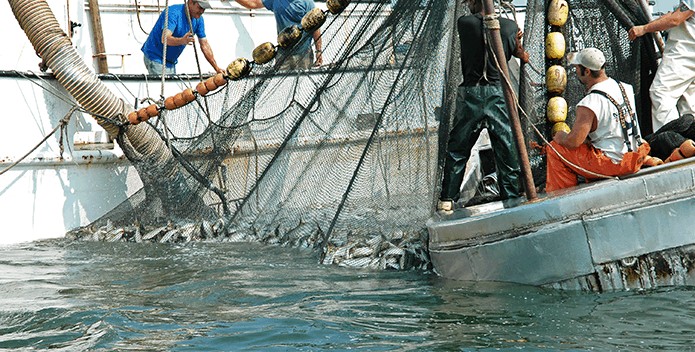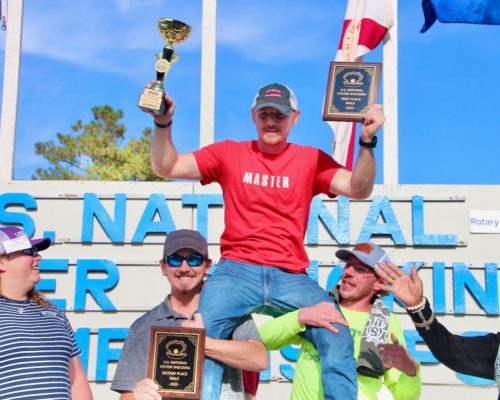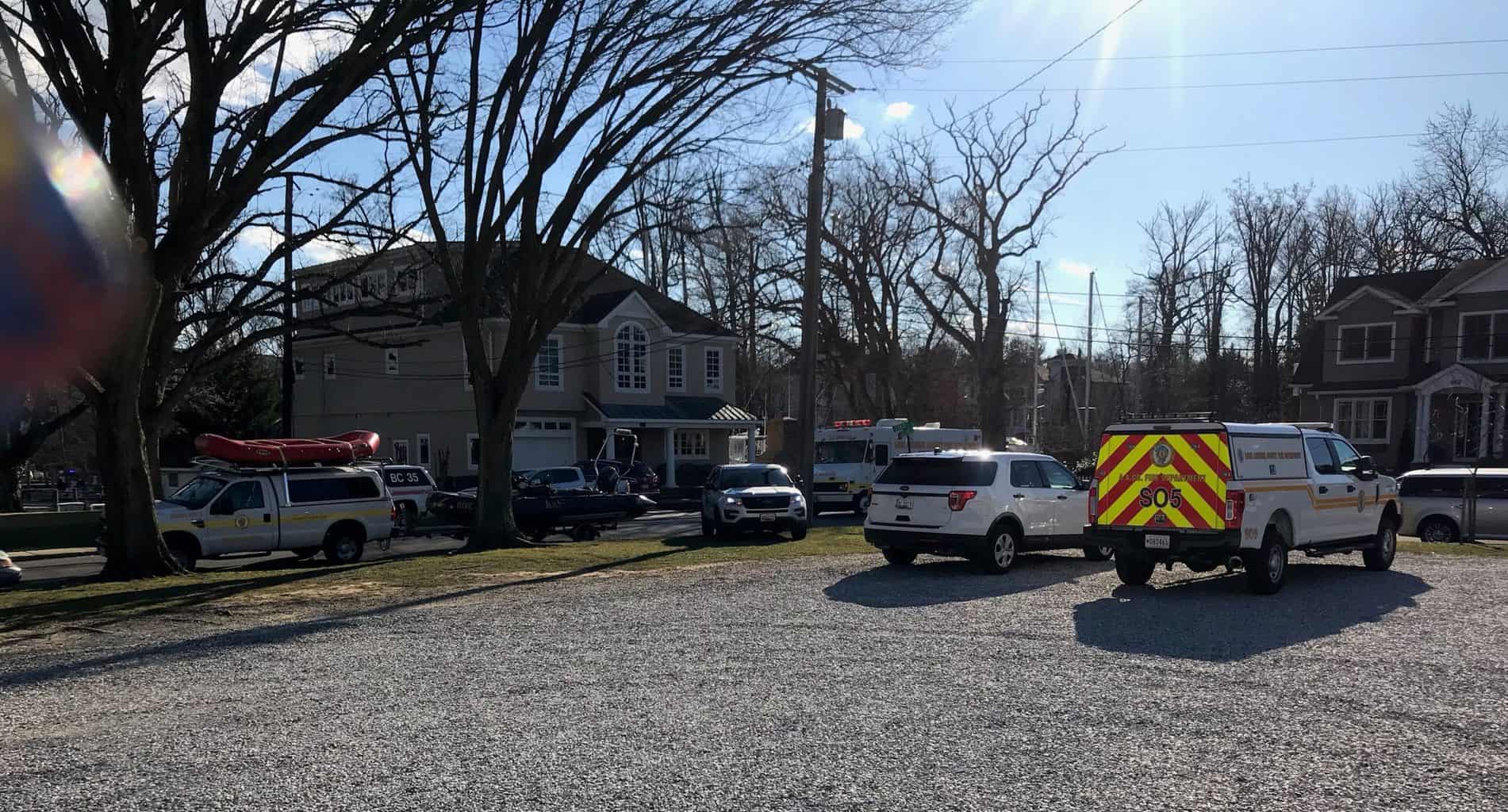The federal government is putting Reedville, Virginia-based Omega Protein, America’s largest fish meal processor, on notice for taking too much menhaden from the Bay in 2019.
The U.S. Commerce Department has decided to uphold Atlantic fishery managers’ finding that Virginia is out of compliance with the Chesapeake Bay harvest cap. The Atlantic States Marine Fisheries Commission (ASMFC) made the noncompliant finding in October, after Omega Protein announced it caught 30 percent more menhaden than the harvest cap allows.
In a letter to ASMFC, the Commerce Department says it concurs with the fisheries managers that Virginia has not implemented the 51,000 metric tons that NOAA Fisheries finds necessary to sustain menhaden in the Bay.
In the letter, Assistant Administrator for Fisheries Chris Oliver writes, “The best available information shows that menhaden in the Chesapeake Bay are an important component of the overall health of the stock, and further that their role as forage for predator species in the Chesapeake Bay is critical to the marine environment.”
In other words, bigger species like crabs and striped bass (whose population is currently in trouble) rely on the small, oily menhaden for food. If the menhaden population gets too low, those predators will suffer.
Oliver goes on to say that the Commerce Department has notified the state it has until mid-June to get in compliance, or it will halt all menhaden fishing in Virginia. That would be a direct hit on Omega Protein, which harvests nearly three-quarters of all the menhaden caught on the East Coast, according numbers from the Chesapeake Bay Foundation.
Oliver writes, “A moratorium on fishing for Atlantic menhaden in Virginia state waters and possession of and landing of Atlantic menhaden if harvested in Virginia state waters will be imposed effective June 17, 2020.”
The Commerce Department picked the June date to give the Virginia legislature time to bring state regulations back into compliance. Oliver reasons that the fishing season doesn’t start until spring, and there’s little to no chance that Virginia could reach the 51,000 metric-ton harvest cap by that early in the season.
Menhaden is the only fishery in Virginia that is managed by the legislature: all others are under the jurisdiction of the Virginia Marine Resources Commission (VMRC). When the legislature failed to adopt ASMFC’s reduced harvest cap, amended in 2017, it left Omega Protein open to break the limit. Even VMRC and Virginia Governor Ralph Northam supported finding their own state out of compliance– in hopes that a Commerce Department punishment would hold Omega Protein accountable for its actions.
In fact, Northam and a bipartisan group of other Atlantic states’ governors, including Maryland Governor Larry Hogan, sent a joint letter to the Commerce Department on Friday calling for a moratorium.
State lawmakers must pass legislation to bring Virginia into compliance, and if they do, the Commerce Department says the moratorium would be lifted immediately.
Even if that happens, many conservation advocates are looking for a longer-term solution. There are increasing calls to put menhaden management into VMRC’s hands, rather than the legislature.
In a statement, Chesapeake Bay Foundation (CBF) Senior Regional Ecosystem Scientist Chris Moore says:
“In order to protect our environment, fisheries, and Virginia jobs, the General Assembly should transfer management of the menhaden fishery to the Virginia Marine Resources Commission, which manages every other saltwater fishery in Virginia and can quickly bring the Commonwealth into compliance. VMRC’s sound, science-based work will ensure compliance so that fishing can resume in 2020.”
While Omega Protein catches 90 percent of the menhaden in Virginia for fish meal and fish oil processing, ten percent of the catch goes to the bait fishery, according to Moore. Fishermen sell menhaden to be used as bait by other watermen– including crabbers on the Chesapeake and others, like lobstermen, further north.
A potential moratorium would affect the bait fishery as well as Omega Protein, who singlehandedly exceeded the harvest cap.
“Unfortunately, one company has drug another fishery down with it,” Moore says.
Still, conservationists see the moratorium as a victory.
“This finding reflects the unified call for conserving menhaden from thousands of Americans and leadership by the Atlantic states,” says The Pew Charitable Trusts’ Joseph Gordon, Project Director for the Conserving Marine Life in the United States initiative.
–Meg Walburn Viviano




